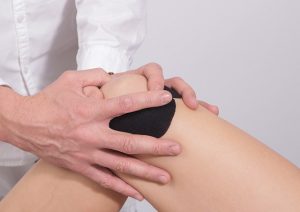Standard Treatment for Injuries May Be Counterproductive

Image is courtesy of Pixabay
If you have ever been injured, you probably heard that you should employ RICE – rest, ice, compression and elevation—to speed recovery. You may have taken ibuprofen or another anti-inflammatory medication to relieve pain and speed healing. New research suggests we shouldn’t be using ice or NSAIDs (non-steroidal anti-inflammatory drugs) to recover from many injuries.
NSAIDs actually slow the healing of injured muscles, tendons, ligament, and bones. Why? NSAIDs work by inhibiting the production of prostaglandins. Prostaglandins are produced as a result of the inflammatory response and may include pain and fever.
Prostaglandins are a group of lipid (fat) compounds with hormone-like effects. They are involved in the creation of collagen, the building block of most tissues. If you reduce inflammation, you impede the healing process, because fewer prostaglandins mean less collagen, which inhibits healing of tissue and bone injuries.
Avoiding NSAIDS applies even to athletes who are attempting to speed recovery after an athletic event. Runners who took over-the-counter ibuprofen before and during a race displayed significantly more inflammation and other markers of high immune system response afterward than the runners who hadn’t taken anti-inflammatory medication. This means their body had to work harder to overcome the stress of competing than those who did not take ibuprofen before or during a race. Common side effects of long term use of NSAIDs include nausea, gastrointestinal ulcers or bleeding, diarrhea, constipation, nose bleed, headache, dizziness, salt and fluid retention, and high blood pressure.
Ice also reduces inflammation, and the conventional wisdom that reducing inflammation speeds recovery, is now in dispute. As always, more research is needed and experts do not agree that use of NSAIDs and ice has been definitively proven to be counterproductive to the healing process. Talk to your physician about the proper treatment for your injury.

















